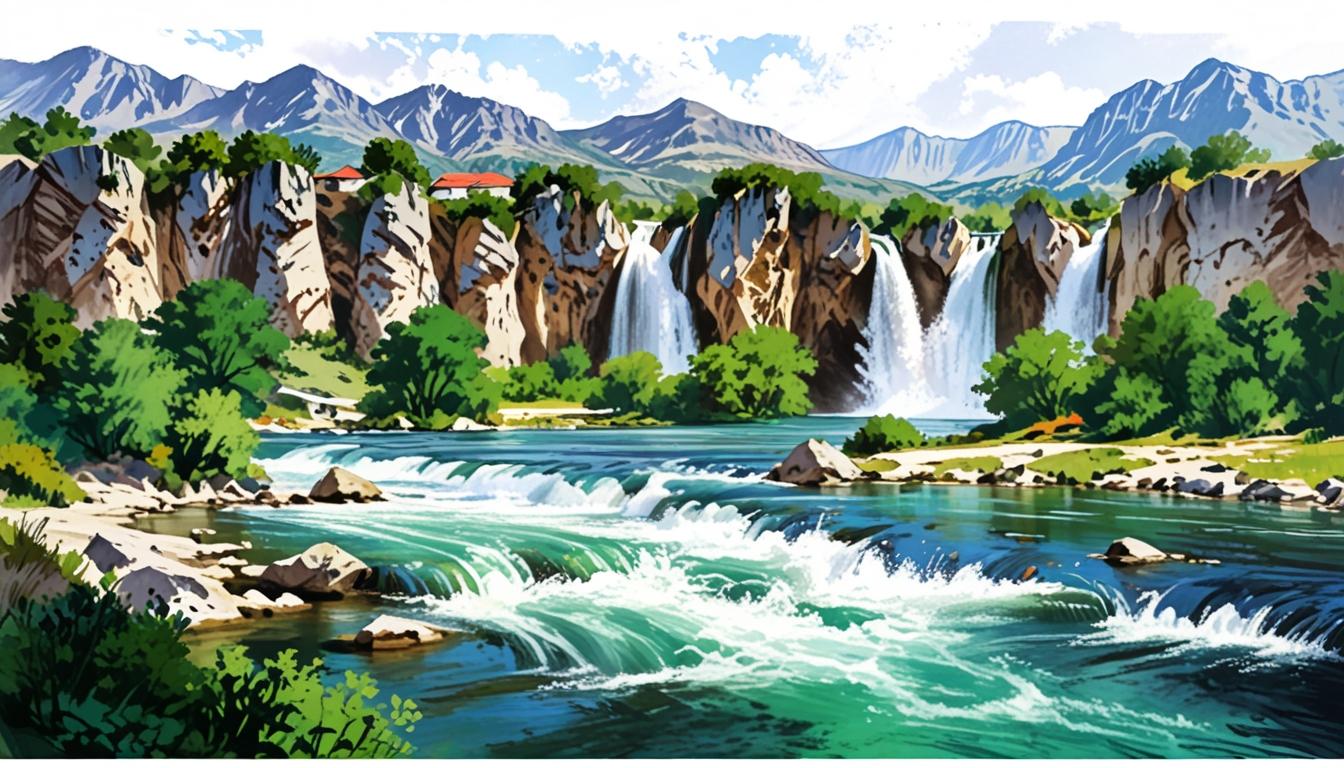The allure of the Mediterranean remains steadfast for many Britons, yet the latest trends indicate a notable shift in holiday destinations. As travellers increasingly explore lesser-known locales like North Macedonia and Bosnia and Herzegovina, it appears a social media-fuelled craze for “destination dupes” is redefining what it means to travel. This phenomenon, largely popularised on platforms like TikTok, suggests that the idyllic beaches of Málaga may soon find themselves overshadowed by the scenic vistas of the Balkan Peninsula.
Recent analysis from the Civil Aviation Authority (CAA) reveals a staggering 284% increase in flights from the UK to Bosnia and Herzegovina in 2024 compared to the previous year. Montenegro follows closely with a 164% rise, while Albania, often dubbed “the new Croatia,” recorded a 61% increase in visits. This dramatic shift is not merely anecdotal; it reflects a broader movement towards affordable and less congested vacation hotspots, particularly among younger generations who are drawn to destinations promising the same Instagram-friendly aesthetics but at a fraction of the cost.
Influencers play a crucial role in this shift, shaping the travel preferences of many. Tara Tadlock, a travel blogger with a substantial following, asserts that the desire to explore new places has been exacerbated by the post-Covid impulse for adventure and the pressing realities of the cost of living crisis. “In the summer months,” she points out, “accommodation prices spike... some restaurants will change their menus and charge extra.” This blend of financial prudence and a quest for novel experiences is steering holidaymakers away from oversaturated tourist hotspots.
Data from the Manchester Airports Group further corroborates this trend, indicating that a diverse demographic, spanning millennials and even parents, is indulging in these less-travelled routes. Young adults under 25 represent a significant portion of arrivals in Albania and Montenegro, suggesting that social media influence is pivotal in reshaping travel patterns. In fact, 76% of older travellers prefer quieter settings, in stark contrast to the 40% of Gen Z who echo similar sentiments, highlighting a generational divide in the approach to holiday planning.
The term “destination dupes,” first introduced by Expedia in 2023, encapsulates this idea of exploring lesser-known destinations that mimic the charm of their more popular counterparts. As Andrew Macmillan, chief strategy officer at Manchester Airports Group, observes, the social media phenomenon has uncovered hidden gems that have long been overlooked. Since the rise of platforms like TikTok, the appeal of the Balkans has surged, leading to a notable uptick in travel to these regions.
While some are eager to venture beyond traditional haunts, established favourites remain resilient. Tenerife continues to dominate as the UK’s most popular holiday destination, with three million passengers in 2024, followed closely by Málaga and Mallorca. In contrast, Bosnia and Herzegovina welcomed just 80,000 visitors—a figure that, while significantly increased, still pales in comparison to the giants of the Mediterranean.
For those who opt for Bosnia and Herzegovina, the experience promises much more than sun-soaked beaches. The country offers breathtaking landscapes—such as the striking Dinaric Alps, tranquil freshwater lakes, and captivating cities steeped in history. Sarajevo, in particular, is a microcosm of cultural richness, showcasing 19th-century Habsburg buildings alongside its Ottoman heritage. As the city approaches the 30-year milestone since the 1992-95 war, the opportunity to reflect on its complexities becomes a poignant draw for tourists seeking depth in their travels.
With influencers documenting the beauty of hidden gems like the Kravica waterfalls and the serene Hutovo Blato nature reserve, it’s evident that Bosnia is not merely an alternative; it is becoming a destination unto itself. As Tadlock aptly observes, the attraction to places less burdened by the weight of overtourism highlights a growing awareness among consumers regarding the sustainability of their travel choices.
Thus, while the sunshine and allure of well-trodden beaches still call to many, a new wave of travellers is embracing the lesser-known—eager perhaps to discover that, in some cases, beauty is not just where it is expected, but often where it is least anticipated.
Reference Map
- Related trends in travel preferences and trends.
- Insights on social media influence on travel.
- Additional data on travel patterns among younger generations.
- Context on popular destinations and emerging alternatives.
- Details on cultural and natural attractions in Bosnia and Herzegovina.
- Insights related to social media's impact on destination popularity.
- Overview of the appeal of the Balkans as a cost-effective travel option.
Source: Noah Wire Services
